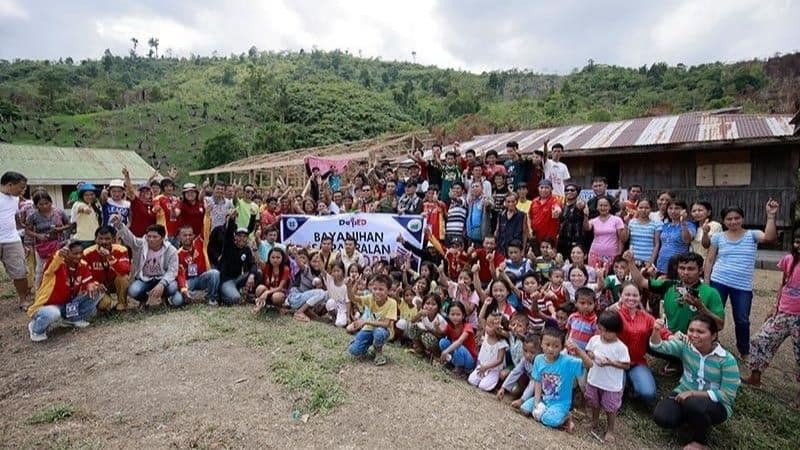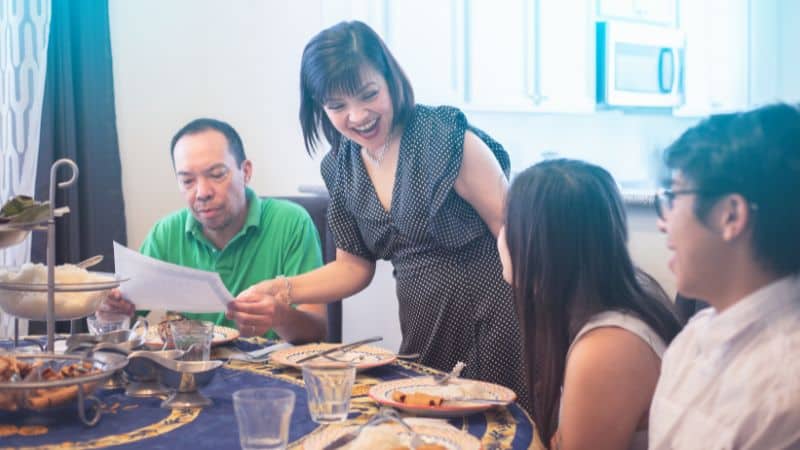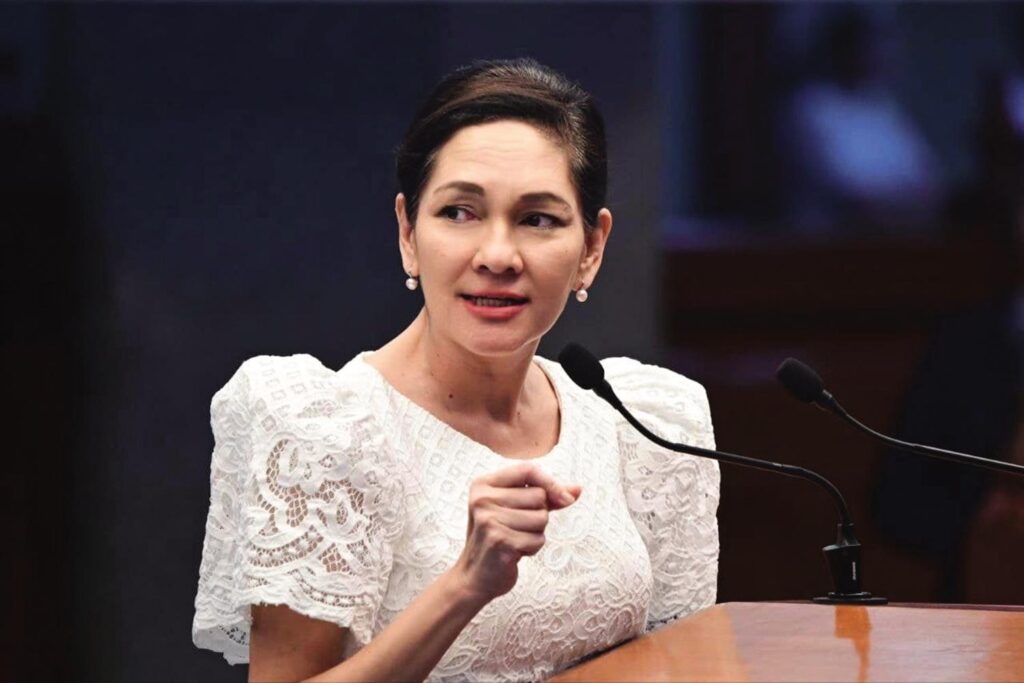Do you want to be a thinking pinoy? I do. And I hope we can encourage more Filipinos to become thinking Pinoys too. For the past years, we have elected corrupt leaders because most of us were misinformed. And I can say that with certainty because I saw the lies.
I feel that we will be of a disservice to our country if we allow the efficient use of social media and other platforms for propaganda to shape us. They cannot fool us. But we live in a democracy where the vote of the uninformed and the fanatics are more than enough to drown our voices and defeat our choices.
Filipinos yearn for clarity amidst a sea of misinformation and propaganda.
We’ve seen it, haven’t we?
Corrupt politicians sweeping the polls because of charm rather than capability. It’s not entirely our fault, though. The allure of beautifully crafted words and promises of a better tomorrow can be too hard to resist.
Who does not want to get rid of drugs? Who does not want unity? Who does not want a peaceful and orderly country?
Filipinos want these changes so bad that many of us believe politicians who sell these ideas, though all their lives they’ve been doing the opposite of what they say. They’re promises were made to get votes.
But it’s high time we equip ourselves better, rise above the chaos, and build an informed and critical society.
How?
By embodying the spirit of a thinking Pinoy. What exactly does it mean to be one?
Let’s dig in.
Be A Thinking Pinoy
These days, people find it difficult to talk about being “matino and mahusay” because others are quick to say that you are self-righteous. Being vulgar and based are held as being authentic. This does not only happen in the Philippines. I am not sure if it is everywhere, but I know it is widespread.
Social media are used by influencers who get paid for telling outright lies. Unfortunately, they have the ability to tell lies again and again and they don’t get penalized when get caught.
Recently, a blogger won a data privacy case against an influencer. The court ordered the culprit to pay 350,000 pesos. That’s peanuts to what he earns. I doubt it will teach him, and others like him, a lesson.
Many of these influencers were caught making up stories. Once, I saw an influencer admitted in a senate hearing that people like her cannot be expected to tell the truth because they are not journalists. I scratched my head because she has millions of followers.
I choose to stay away from politics because I don’t want to spend time fact-checking propagandists.
Instead, I write more on how to become a good citizen. Becoming a thinking pinoy is one way.

1. Curiosity and Inquisitiveness
A thinking Pinoy is naturally curious, an intellectual explorer always ready to dive into the depths of any issue.
You know that famous quote, “Curiosity killed the cat”? Well, not for a thinking Pinoy. Our curiosity saves us from being deceived.
It’s that burning question in the back of our minds, nudging us, “Is this the whole story?”
Picture this: a new policy is enacted, promising prosperity and growth. Sounds amazing, right?
We will not just take this at face value. We will ponder on it, scratching beneath the surface.
“How will this affect our farmers? Our teachers? Our fishermen?”
We understand that a promising headline could hide the true consequences. We’re not pessimistic, just realistic. Our inquisitive minds prevent us from being easy targets of misinformation and propaganda.

2. Analytical Skills
Thinking Pinoys don’t just take in data.
We dissect it, scrutinize it, and most importantly, make sense of it. We can see patterns where others see chaos, and sense manipulation where others see facts.
When a politician proudly announces that the GDP has grown under their administration, a thinking Pinoy doesn’t immediately break out in applause. We raise an eyebrow and start digging deeper.
What about the employment rate?
Are our kababayans earning enough to put food on the table? What’s the price of a kilo of rice? Of garlic and onions?
How about the inflation rate? Can we now buy more goods for the same amount of money? If not, then they are telling us a fact, but not the whole truth.
We understand that looking at one statistic in isolation can paint a skewed picture of reality. Our analytical mind ensures they don’t fall for oversimplified narratives.

3. Commitment to Truth
Truth. It’s a word that carries a heavy weight for a thinking Pinoy.
We know that truth can often be bitter, challenging long-held beliefs and shattering illusions. But we’d rather face an inconvenient truth than live in a comfortable lie.
Say there’s a popular politician, beloved by the masses but has a history of corruption. A thinking Pinoy won’t shy away from this.
We’ll raise their voice, armed with solid evidence, and call out the elephant in the room.
Plunderers will continue to plunder.
We understand that a society built on lies is like a house built on sand. When the storm comes, it collapses. Our commitment to truth serves as a sturdy foundation for our democracy.

4. Cultural Awareness
The Philippines is not just one homogeneous mass, is it? It’s a beautifully diverse nation, a mosaic of different ethnicities, languages, and traditions. A thinking Pinoy knows this and cherishes it.
We know that our strength lies in our diversity and unity.
When a politician attempts to divide us by blaming a particular ethnic group for the country’s woes, a thinking Pinoy doesn’t fall for it.
For example, there was a lawyer who said that all Muslims, including children and women, must be killed. He called everyone who oppose his ideas “bobo”. Worst, he was invited many times to speak at many colleges around the country. He was praised for doing something he did not do.
Even in our colleges, we have teachers who failed to think critically.
It is a good thing that this lawyer was disbarred by the Supreme Court. Unfortunately, prior to his disbarment, he was appointed to a juicy position in the government. It was as if the appointment was an anticipation of the disbarment. If the disbarment happened ahead, he won’t be appointed. Politics.
Thinking Pinoys will argue against this.
And we will argue against any attempt to blame one ethnic group for the miseries in our country. We will remind our people of our shared history, our shared struggles, and our shared dreams.
We understand that cultural awareness can be our shield against manipulative narratives that seek to divide and conquer.

5. Civic-mindedness
Civic-mindedness is a way of life. Thinking Pinoys believe in the power of collective action and the importance of contributing to society beyond casting a vote.
We understand that the fate of the nation is not just in the hands of our leaders but in ours too.
Imagine a typhoon has just hit a nearby province. A thinking Pinoy doesn’t just sit back and watch the news. They roll up their sleeves and join relief efforts. In this country, we do bayanihan.
We might be packing goods, mobilizing resources, or spreading awareness about how others can help.
We realize that progress is not a one-man show but a communal performance. Our deep sense of civic duty ensures they don’t just point fingers during crises but contribute to solutions.

6. Open-mindedness
A thinking Pinoy is always ready to open the windows of their mind and let fresh air in. The world is constantly changing and to keep up, we need to be open to new ideas, perspectives, and ways of doing things.
Let’s consider a hot issue like federalism or the death penalty.
A thinking Pinoy doesn’t just stubbornly cling to their stand. WE start a discussion, welcoming different viewpoints and considering them. We know that in the exchange of ideas, lies the opportunity for growth.
We understand that being open-minded doesn’t mean being indecisive, it means being receptive to learning and evolving.

7. Value Education
Education. A thinking Pinoy knows its power and cherishes it. We understand that education doesn’t end when we step out of school. It’s a lifelong journey, a path to enlightenment.
A thinking Pinoy might spend our free time attending a public lecture on climate change, reading a book about Philippine history, or listening to a podcast on mental health.
We know that to shape a better future for our nation, we need to continuously expand our horizons.
We don’t just value education, we celebrate it, using every opportunity to learn, not only for personal growth but also for national progress.

8. Emotionally Intelligent
In a world where political debates can heat up quicker than a pot of adobo, a thinking Pinoy knows how to keep their cool.
We must master the art of emotional intelligence, which includes understanding our own emotions and empathizing with others.
Picture a rally where emotions are running high.
A thinking Pinoy doesn’t let anger or frustration cloud their judgment. We must express our views without stepping on others’ toes. We must be quick to spot when emotions are being manipulated for political gains, like a politician using fearmongering to gain support.
Our emotional intelligence ensures that even in the midst of fiery discourse, we keep the conversation constructive and respectful.
And so, it goes on. Being a thinking Pinoy isn’t just about being smart or informed. It’s about being aware, empathetic, open, and active.
It’s about embracing the power we hold as citizens and using it wisely for the betterment of our nation.
So, are you ready to be a thinking Pinoy?

9. Persistence and Resilience
Persistence and resilience are defining traits of a thinking Pinoy. Change is often a slow, uphill journey, laden with obstacles and setbacks.
However, we do not give up easily, understanding that true progress requires patience and persistence.
Consider the fight against corruption.
We know that this is not a battle that can be won overnight. So, we will persist, relentlessly holding the corrupt accountable, pushing for transparency, and advocating for reforms.
Even when we face disappointment or opposition, we will remain resilient. Our persistence serves as a reminder to us all that the power to effect change lies not only in starting the fight but also in seeing it through.

10. Active Participation
We are a thinking Pinoy. We are active participants. We’re not just spectators in the grand theater of Philippine politics and society; we’re in the thick of it, playing our part, voicing our opinions, and making a difference.
Suppose there’s an upcoming local election.
A thinking Pinoy doesn’t just sit back and wait for results.
We will be out there engaging in debates, spreading voter awareness, and most importantly, casting their vote.
We know that every decision, no matter how small it seems, can have significant implications for the future of our country.
We also encourage others to participate actively, as they believe in the power of collective action. Our active participation is a testament to our commitment to our country’s progress.
In conclusion, the thinking Pinoy is not a mythical figure.
It’s you, it’s me, it’s all of us.
It’s about cherishing the power and responsibility we hold as citizens.
It’s about embodying curiosity, analytical thinking, commitment to truth, cultural awareness, civic-mindedness, open-mindedness, the value of education, emotional intelligence, persistence, resilience, and active participation.
Being a thinking Pinoy means equipping ourselves with knowledge and using that knowledge to contribute positively to our society. Let’s embrace these characteristics and work together in building a better future for our beloved Philippines.







